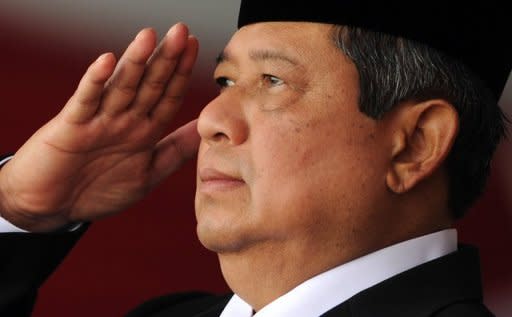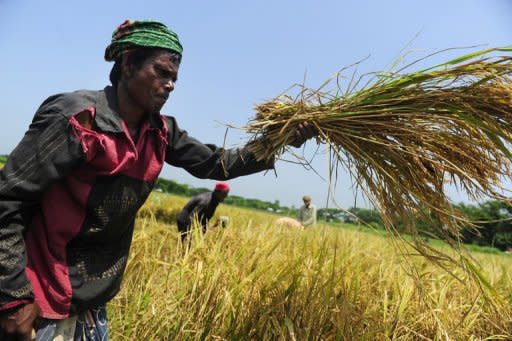Indonesia president hails Asia's future
Indonesia's President Susilo Bambang Yudhoyono said on Sunday Asia could be "the continent of the future" but must first confront the challenges of rising demand for food, energy and water. Speaking at the start of a two-day World Economic Forum on East Asia, an event drawing political leaders and industry chiefs from across the region, Yudhoyono said Asia's growth will put it at the heart of the global economy. "Asia, more than any other region, can help achieve a strong, sustainable and balanced world economy," Yudhoyono said. "Asia certainly has the resources, opportunity and most importantly, confidence to shape the international system." The forum -- which is meeting under the banner of "Responding to New Globalism" -- aims to tackle critical issues facing the region including rising demand for resources and its response to the ever-present threat of natural disasters. Yudhoyono, whose country is hosting the WEF for the first time, cautioned that continued growth could be compromised by competition for natural resources. "Of the seven billion people that now inhabit our planet, 60 percent live in Asia. As their economies grow, they will seek and compete for finite natural resources, a pattern that in previous centuries led to wars, conquest, exploitation and untold suffering," Yudhoyono added. One key issue up for discussion at the forum is food security with regional leaders keenly aware of the impact of rising prices on poor populations. "Every six seconds a child dies because of a lack of food. We need to find sustainable food security system," WEF co-chairman Paul Polman, also the CEO of Unilever, told reporters. WEF head of Asia director Sushant Palakurthi Rao said participants, including those from the Association of Southeast Asian Nations (ASEAN) regional bloc, will share their expertise on the issue. A food security initiative which will be launched at the forum aligning the food industry and regional policy makers. "The conversation taking place in Indonesia is similar to the ones we've done before in Tanzania and Vietnam, combine the expertise the countries which have successful agriculture policies with expertise in supply chain management and agriculture efficiency," Rao told AFP at the sidelines of the meeting. Indonesian trade minister Mari Pangestu said that a 10 percent increase in food prices in Indonesia led to a one percent rise in poverty levels. "We should not wait until the next spike before we act," Pangestu said on food price. An initiative on disaster response is also expected to be launched at the forum. Among the heads of government attending the forum are Singapore's Prime Minister Lee Hsien Loong, and his counterpart from Thailand, Abhisit Vejjajiva. WEF on Wednesday released its first-ever Indonesia Competitiveness Report which found that the archipelago of 240 million people had showed the strongest progress among the Group of 20 countries. Ranked 44th of 139 economies in the Global Competitiveness Index, Indonesia "has done remarkably well in the past decade and has proven very resilient during the global economic crisis," WEF economist and the report's author, Thierry Geiger, said. Poor infrastructure was however among its "most glaring shortcomings", he added. According to its website the World Economic Forum is an independent organisation bringing together top business leaders, governments and academics to discuss responses to challenges facing the world. The East Asia forum is held several times a year. The WEF's centrepiece annual meeting is held in the Swiss mountain resort of Davos.


